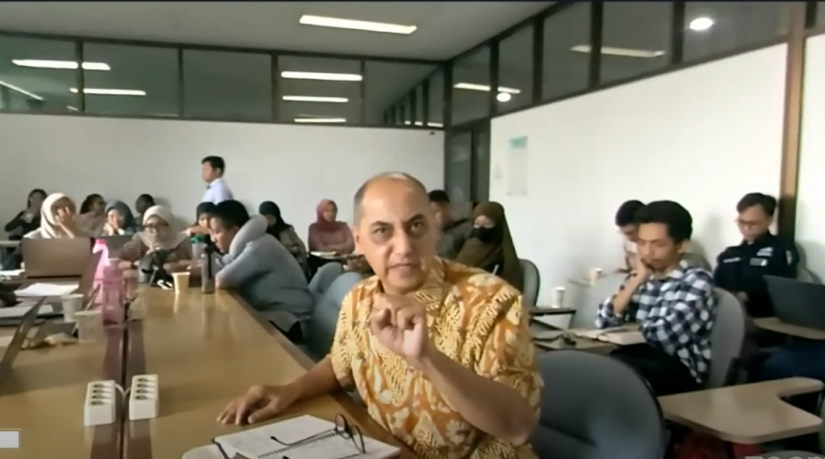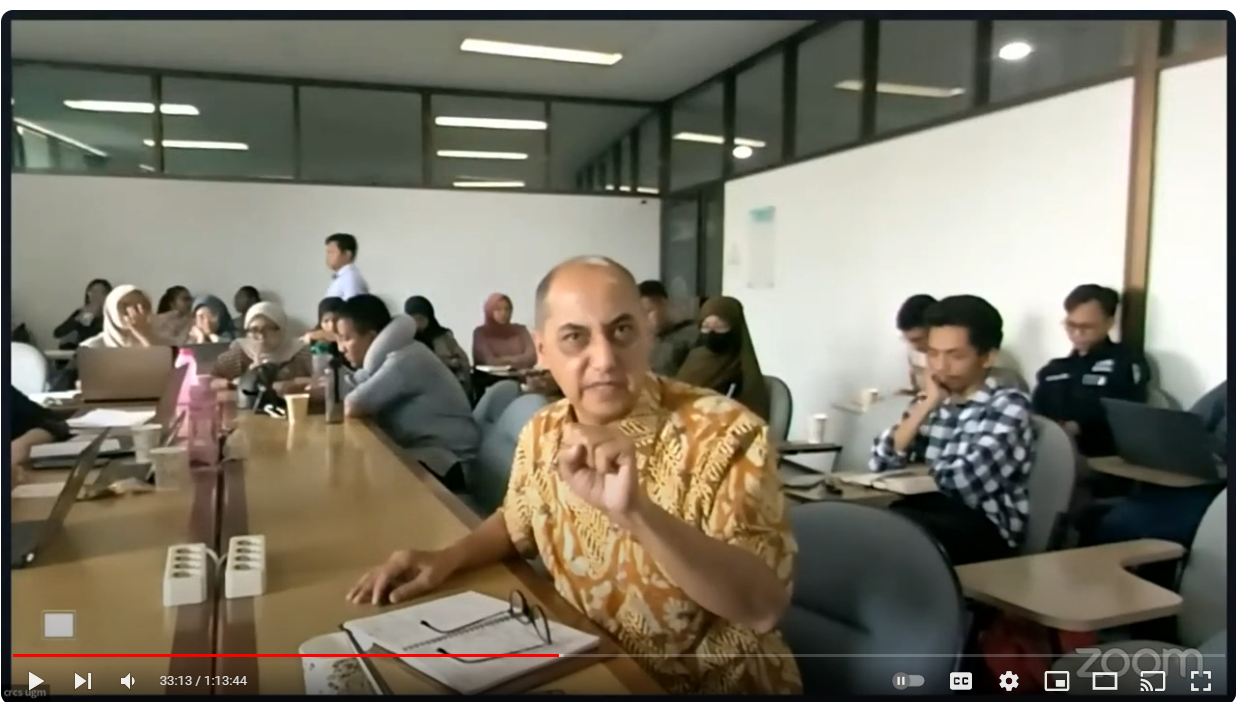

The first semester of the 2024/2025 academic year has begun, and the Center for Religious and Cross-cultural Studies (CRCS) at the Graduate School, Universitas Gadjah Mada is hosting the first Wednesday Forum of this semester. This weekly event serves as a platform for CRCS students to engage in discussions and learning with various experts and activists.
On Wednesday (August 21st), the Wednesday Forum venue was in Room 306, Graduate School Building at UGM, focusing on the topic of Violent Extremism in Bima. Bima is a district in West Nusa Tenggara with a long history of extremist activities but remains under-researched. The speaker for this session was Dyah Ayu Kartika, a doctoral candidate at the Australian National University and a researcher at the National Commission on Violence Against Women (Komnas Perempuan), the Center for Religion and Democracy (PUSAD) Paramadina, and the Institute for Policy Analysis of Conflict (IPAC).
In her presentation, Dyah revealed that Bima is part of the “golden triangle” of radicalization and extremism in Indonesia. Bima possesses all the elements needed to form extremist factions. She argued that violent extremist groups in Bima cannot be separated from their radical environment, at least in terms of beliefs, ideas, and common goals. The extremist groups in Bima emerge from a social environment with a shared perspective.
“Terrorist groups in Bima operate within a radical environment, which is part of a broader socio-political context. Terrorist groups engage in and agree to use violence against the state, while radical groups have a more open structure, with their activities limited to militant forms of protest. Throwing Molotov cocktails is still considered militant, not violence, so violence is defined as using larger bombs or weapons,” Dyah explained.
The forum participants were actively involved in the Q&A and discussion sessions. The sessions were interactive and delved deeper into understanding violent extremism in Bima compared to other regions.
In conclusion, Dyah emphasized the importance of understanding and appreciating cultural diversity, which plays a significant role in conflict resolution and reducing discrimination to alleviate violent extremism in Bima. “We see an increasing number of peace-building initiatives aimed at easing tensions in Bima, not only from the government but also from community leaders,” Dyah concluded.
Author: Asti Rahmaningrum
